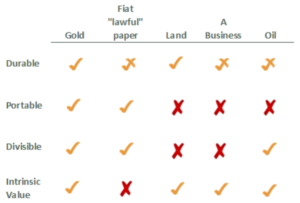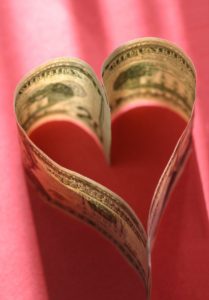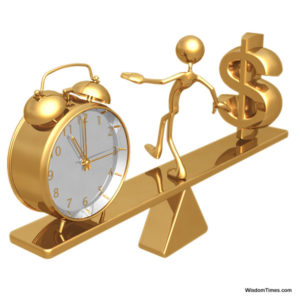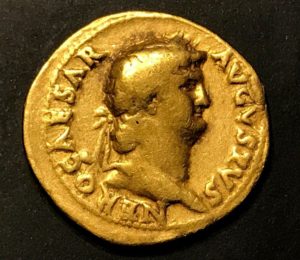
Lydians or Hellenists; depending whom you read, developed Money in the form of coinage about the 7th century (B.C.). When Persia absorbed Lydia they became the first major power to use coinage. However the inquisitive Greeks sought to define money with Aristotle, instructor to Alexander, the Great, detailing money’s qualities separating it from commodities previously used (Aristotle and the Definition of Money). Gold, silver or some other commodity was weighed as agreed for goods or services (Ge 23:16). An American, Alexander del Mar, wrote extensively about money; especially how it was abused preparing us for the Great Reset.
“Money has become by convention a sort of representative of demand; and this is why it has the name “money” (“nomisma”)—because it exists not by nature but by law (nomos) and it is in our power to change it and make it useless,” (Convention. Social Convention, 1.1. Aristotle. Stanford Encyclopedia of Philosophy.). Alexander del Mar wrote, “…money, or nomisma, which is an institution or a measure of value prescribed and regulated by law…” (History of Monetary Systems. p. 37.). In other words, money is not a commodity; i.e., gold silver, etc. It is an agreed upon standard value exchange established by government to fix the value of goods and services in a form that is durable, portable, divisible and of intrinsic value. Gold, silver, oil {Petro Dollars}, etc. only represent the legally established value which allows the efficient transfer of wealth based on goods and services. Mr. del Mar quotes Basiat (1840), “Exchange is political economy; it is society itself” (Bankers and Other Rouges. p. 38.). He also quoted Destutt Tracy (1870), “Society is held together by exchanges…Exchange is a social act, money is a social mechanism; it is a public measure of value, the unit of which is not one coin, not one note, but all the coins and notes of like currency under the law of each nation…stability can only be secured by national authority and limitation” (ibid. p.38.). No society can exist without legal money or tender. If the national government, directly responsible to its citizens, gives up its vested interest in legally controlling money it harms both its citizens and its very existence. Economics is the mechanism by which government controls its monetary value.
Alexander del Mar (History of Monetary Systems.) wrote there have been five periods: First-Religious; Second-Republican; Third-Caesars; Fourth-Kingly (Monarchs) and Fifth-Private Coinage. This post focuses on Mr. del Mar’s recitation of the transition from the Fourth to the Fifth period and its importance today. Economics is the mechanism by which a private concern gains wealth for itself at the expense of governments and citizens inducing slavery. This has become the basis for modern central banks and the coming Great Reset.

Money, value, is power just as energy is power in industry. Wherever power is concentrated, covetous people will gather to separate the forms of power from the simple, greedy and irresponsible leaders of government. I have yet to meet a politician who would not sell his morality, his kindred and even his country for more power; yet, in the process he, or she, becomes more powerless as the citizens they are sworn to protect. Sadly, this has been the history of modern nation-states.
According to Mr. del Mar, Charles II of England was induced by all three weaknesses to give up the power of the State over coinage to a private corporation: East India Trading Company (Bankers and Other Rouges.). The East India Trading Company was comprised of over 200 elite financiers, Parliamentary members and landlord classes. Government’s economic duty is to prevent expansion or contraction of the monetary system. Charles II and his advisors were corrupt, sensual and easy prey for the intelligentsia. England was experiencing a bullion glut from the Americas, devaluing money. The East India Company asked for permission to export some coinage and bullion to maintain monetary stability; later this became permanent. Two major mechanisms were used to corrupt the Crown inducing it to support these measures which robbed it of power: Bribery and Lies (Jn 8:44). This was the beginning of corporatism over government and would become embodied as a private central bank supposedly assisting the government in its monetary responsibilities; another lie.
The machinations of the East India Company not only robbed India of its precious commodities, it caused a coinage shortage in both England and its colonies: America. An America, Mr. Hull, minted Pine Tree shillings in Boston from precious metals brought to him by privateers and pirates. However, since they wanted their bullion returned to them in coinage this did not alleviate but exacerbated the shortage. These illegal tender coins were viewed as usurpation of the Crown’s sovereignty, even though it had already given its sovereignty to a private company. England retaliated with the Stamp Act to prevent American colonists from printing paper money when coinage was scarce. Thus, the main cause of America’s revolution was not simply taxation; at its heart it was the authority to develop legal tender. When Christ was asked about taxes He asked for a coin as it carried the authority of the State; i.e., it was not simply a piece of gold or silver but represented state sovereignty (Mt 22:15-22). By producing a Roman coin they were acknowledging that they were not sovereign but under Rome’s authority, which was the will of God (Ro 13:1-7).
Alexander Hamilton, first Secretary of the Treasury, copied Great Britain’s monetary system and sought to develop a central (private) bank in America. President Jackson destroyed any attempt to transfer sovereign power from his government to private financiers and this persisted until the marriage of government to corporatism in the Progressive Era.

Control of the love of money under the power of the Holy Spirit maintains a balance preventing boom (expansion) and bust (contraction) cycles which is the responsibility of government. However, governments, and most people in government, are not ruled by God’s Spirit but by their own lusts which are enslaved to Satan; thus, their lust for money drives them until their efforts expand beyond value. Then a correction sets in before the monetary system collapses. The boom-bust cycles blamed on free trade flow from covetousness. Yet, the very financiers, corporatiers and corrupt government officials which caused these cycles bribed and lied their way into the privatizing of America’s banking system: Federal Reserve. This system, rather than reducing these cycles, drove them out of control and with the central banks of friendly nations to nearly destroy the nation-states: Great Depression, Stagflation, etc.

Our next post will follow the trail of money from a commodity to a fiat to nothing; i.e., digital currency into slavery.
